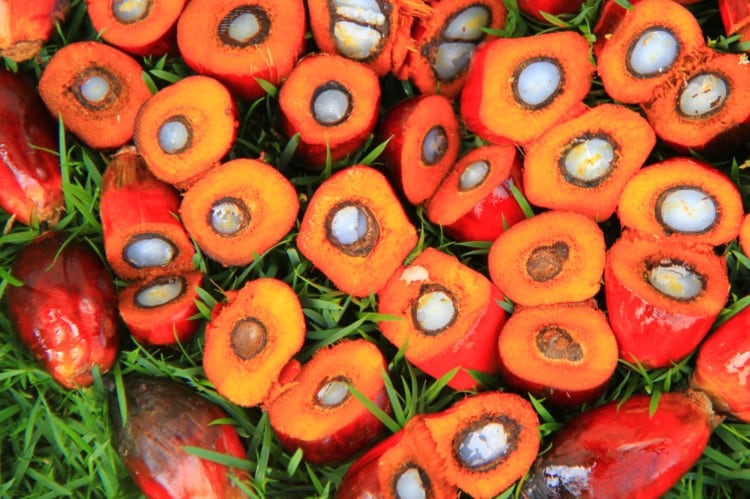Palm oil is the most widely consumed vegetable oil in the world. Favoured by food formulators for its versatility and neutral taste, the ingredient is found in more than 50% of all products in the supermarket – both in food and non-food categories.
In Switzerland, the story is no different. It has been estimated that palm oil is an ingredient in every fifth product on the Swiss market, most commonly in everyday items such as chocolate, margarine, soaps, washing detergents, and cosmetics.
While palm oil is sustainable in the sense that it is high yield, when produced irresponsibly it is considered extremely unsustainable. Palm oil production is a leading driver of deforestation, biodiversity loss, and climate change.
In an effort to turn the tide on irresponsible production, the Roundtable on Sustainable Palm Oil (RSPO) was established in 2004. Food brands who source RSPO-certified palm oil are eligible to carry the RSPO label on-pack.
According to researchers at ETH Zurich in Switzerland, little is known about consumer awareness of the label. Or indeed, what consumers in Switzerland think about palm oil, full stop.
Having conducted a 2019 online survey in both German- and French-speaking parts of the country, the researchers have sought to find out.
Perception and awareness low
A total of 1076 participants took part in the survey.
Findings suggest that consumers have a negative perception of palm oil. A total of 41% of respondents were deemed to associate the contentious ingredient with a ‘negative environmental impact’.
Social and health-related detriments were mentioned less frequently, with only ‘very few’ participants naming positive associations.
Compared to butter, canola oil, and coconut fat, palm oil was perceived to be the least healthy, the least sustainable, the lowest in quality, the least tasty, the least familiar, the least expensive, and the most foreign.
The researchers were also interested in participants’ awareness and acceptance of palm oil in specific products.
Overall, respondents were more aware of palm oil in edible, rather than non-edible, products. However, participants appeared to be more accepting of palm oil in non-edible products, than edible products.
“Regarding edible palm oil-containing products, Nutella was the product that most participants were aware and accepting of palm oil as an ingredient,” noted the study authors.
Just 9% of respondents recognise RSPO label
In examining consumer awareness of the RSPO label, the researchers showed respondents three eco-labels: RSPO, UTZ (which promises sustainably farmed coffee and cacao products), and Swiss organic label BioSuisse.
Whereas 93% of participants recognised the BioSuisse label and 64% had seen the UTZ label before, just 9% of participants knew the RSPO label.
Interestingly, it did not appear that consumers with a high concern for sustainability and had a low acceptance of palm oil in products correlated with awareness of palm oil in products and the RSPO label.
“This is surprising because one would expect consumers who care about the environment and who are critical of palm oil to be more aware of which products contain palm oil and of a sustainable palm oil label like that of RSPO,” noted the study authors.
“As a result, it is unlikely that this segment can translate their pronounced palm oil concerns into more sustainable palm oil product choices, as they are not even aware of which products contain palm oil.”
Source: Food Quality and Preference
‘Palm oil and the Roundtable of Sustainable Palm Oil (RSPO) label: Are Swiss consumers aware and concerned?’
Published online 20 July 2022
DOI: https://doi.org/10.1016/j.foodqual.2022.104686
Authors: Bianca Wassmann, Michael Siegrist, Christina Hartmann.




